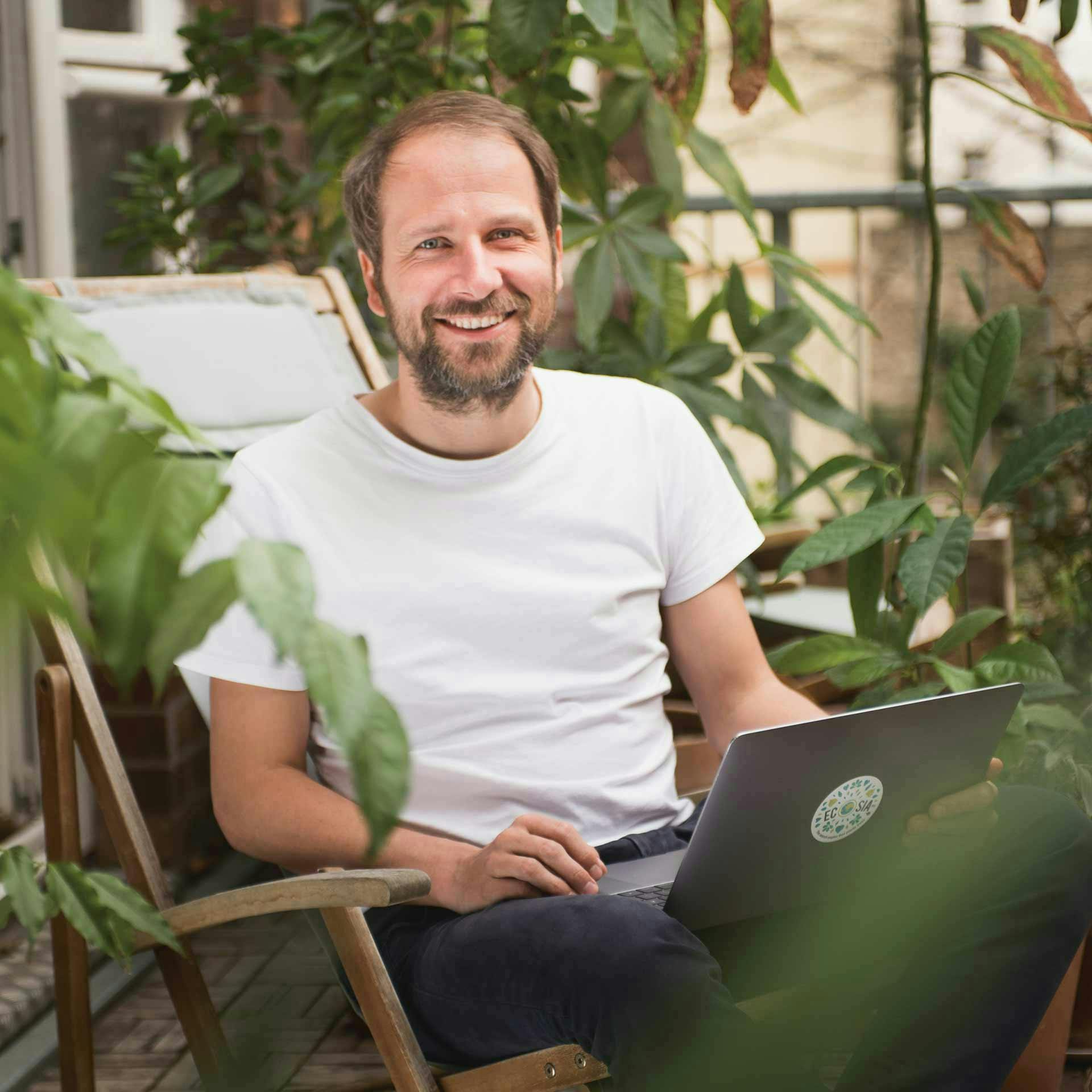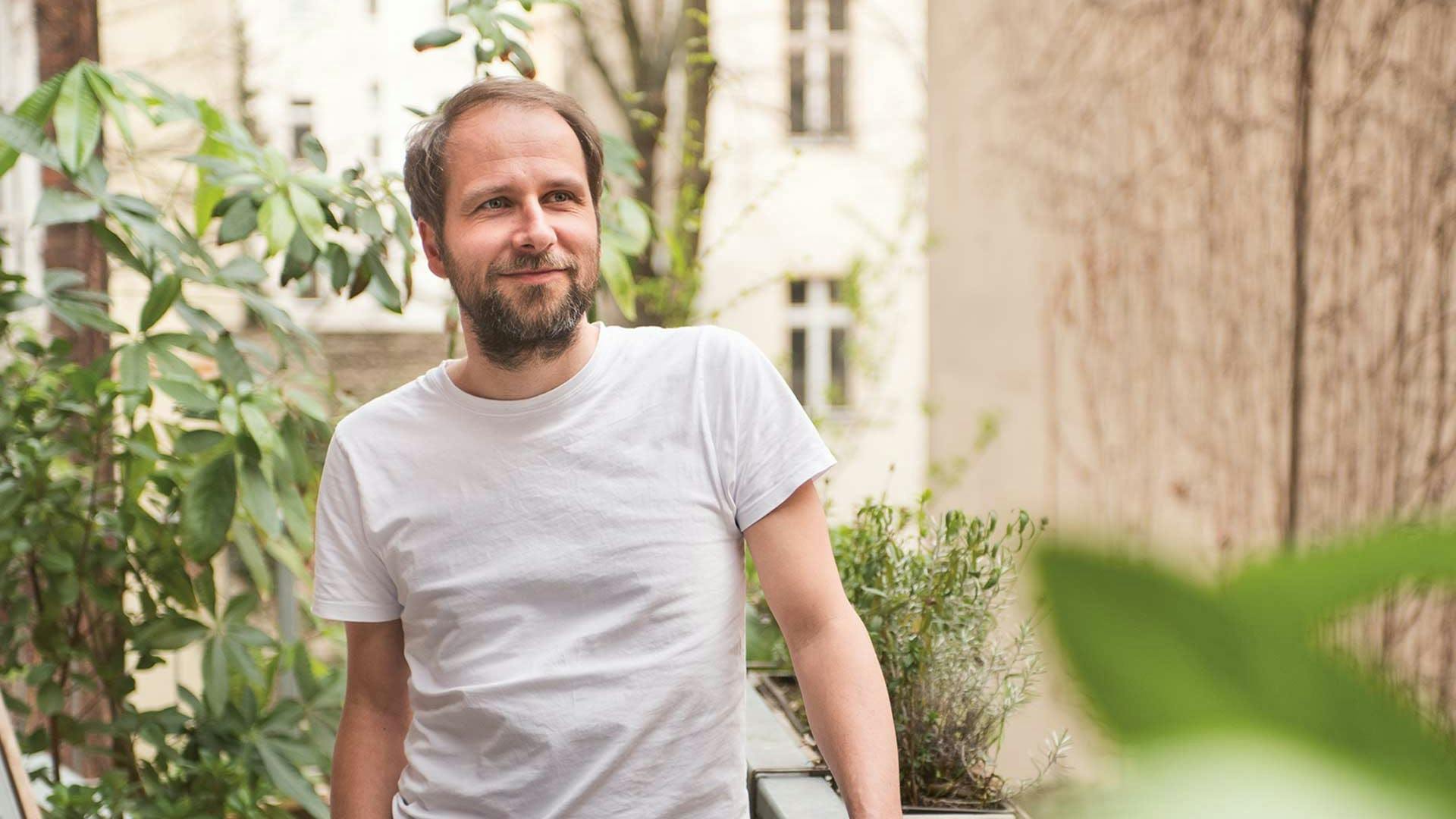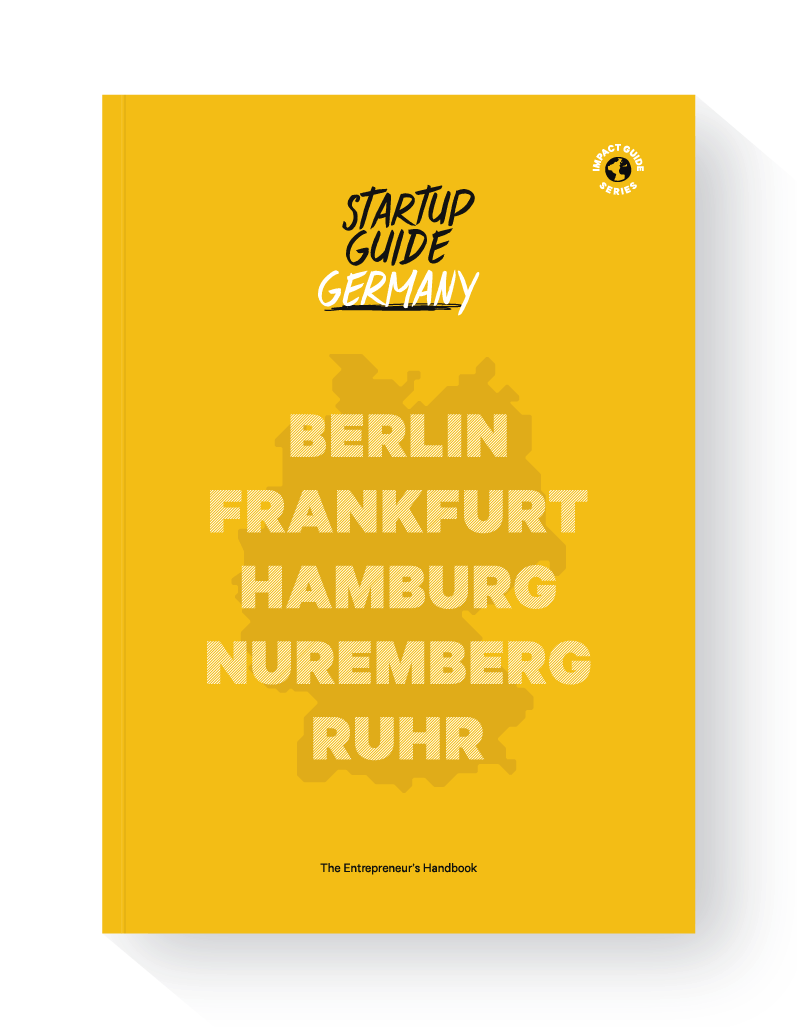What Christian Kroll learned founding green search engine Ecosia
cosia is a search engine that invests 80 percent of its profits in international tree-planting and reforestation projects to neutralize CO2 emissions. A social business aimed at benefiting the environment, local people and economies, it also has a strong commitment to transparency and user privacy. In 2014, it became Germany's first B Corporation.
Founder and CEO Christian Kroll studied business administration in Nuremberg before traveling around the world and setting up his first impact-focused enterprise, Xabbel, while living in Nepal. A search engine that generated funds for local NGO projects, it was short-lived, but Christian remained convinced that search engines could be a positive tool for change.
While traveling in South America, he learned about reforestation projects and became aware of climate change and its connection with globalization, as well as the carbon-neutralizing potential of planting trees. After returning to Germany, he set up Ecosia in December 2009.
Did you have any experience with entrepreneurship before you set up Xabbel?
Not really. After the [Berlin] wall came down, my parents both decided to start their own small businesses, which probably, at least indirectly, inspired me. Aged sixteen, during the stock market boom, the dotcom bubble, I was getting interested in stocks, talking about stocks with friends, and that's how I got interested in the business world.
I also had small projects here and there during university. My first real project was an online comparison site for online brokers because I was interested in the stock market and knew which brokers were good and which were not so good. I would earn a commission for every signup. It paid my expenses during university but not much more. My second project was Xabbel.
Were you always interested in trying to tackle the big issues?
I wasn’t aware of climate change before the age of twenty-five or so. Sustainability and many social and environmental problems were not really on my radar, or not high priority. That really changed when I traveled around the world. That trip basically opened my eyes to all the injustices, that eighty or ninety percent of people on the planet didn't have the same opportunities as I did.
I also found out about climate change during that trip and realized that this is the biggest challenge of our – of all – time and that we need to do something about it. That was my wake-up call, when I decided I didn’t want to do a project that doesn't have an impact on people and the planet as well.

Ecosia founder Christian Kroll. Photo: Ecosia GmbH
Most people probably wouldn’t think of combining tech and trees. What made you think it could work?
For me, it absolutely made sense because I had that first project comparing online brokers and I realized most of the money I made I had to pay to Google because otherwise I didn’t get traffic to my sites. That's how I realized a search engine is a very good idea.
The tree-planting part came from observing environmental destruction but also wanting to help people and solve climate change. You can very elegantly do those things by planting trees. I was looking for solutions and I realized that tree planting really is one of the things that has a lot of positive impact. Trees are basically the KPI for a healthy planet. Not only healthy environmentally, but also for a healthy society.
Why did you decide to run Ecosia as a for-profit enterprise rather than an NGO?
I think that was probably the DNA I had from studying business administration, but also maybe from my parents. I just wanted to have the independence to run something and the freedom to do whatever I think is right and not have to rely on donors.
I decided I didn’t want to do a project that doesn't have an impact on people and the planet as well.
Did you approach investors at any point?
No, not really. Ecosia is a for-profit company in the sense that we need to make a profit to run the operation, but we turned it into a steward-ownership company, which is still something quite new. It's basically a business that can never be sold, and it's impossible to extract any profits or for external shareholders or external people to take control. So, it's a self-owned nonprofit business. It’s legally binding, so it can't be reversed.
For me, this model makes a lot of sense because we want to be more than a business; we want to be a movement for solving climate change. But it's not necessarily something that is very attractive to investors. From the very beginning, it was clear that an exit or profit maximization was never my objective. I wanted to maximize the number of trees I could plant, and that's why I never really thought of investors because I didn't want to give control of the company away.
At some point, however, I got in touch with Tim Schumacher, who is an experienced investor, business angel and serial entrepreneur. He was so interested in Ecosia’s mission that he decided to participate and give some money but not really see it as an investment, more as a contribution to fighting climate change. I got all the knowledge of an experienced business angel without having to follow the traditional path of getting investors into the company.

By making Ecosia a steward-ownership company, did you legally safeguard its core values and structure?
Yes, and I really think this is going to be our long-term USP. I mean, even Google could start planting some trees tomorrow but what they can't copy is our independence.
What were the biggest challenges in setting up the company and scaling?
For the first few years, it was really more a hobby project than a real company. I didn't have the experience of how to build a company so I basically had to learn everything by failing myself to the next level, so that made things quite slow. But also, we didn't have any external investment; we had always had to rely on our own cash flow.
And in the early days, we gave eighty percent of our revenue away to tree planting, and the revenue was rather small so there was really not much money left over to hire people or make big investments. So that meant that it took quite some time to get to a point where I could really call Ecosia a company.
The first four years were really slow. Then, two or three years ago, when climate change got much more attention from the public, we really started hitting exponential growth, and we're now Europe's biggest search engine. There's Google with ninety-five percent or more market share, but there's really nobody else. We don’t even have one percent market share in Europe but that already makes us the biggest European player.
This puts us in quite an important position already even though we're still quite a small company. But it’s only happened during the last few years. In 2019 to 2020, we doubled the number of our employees, and in 2020 we hit 100 million trees planted after our number of trees planted doubled in just one year.
From the very beginning, it was clear that an exit or profit maximization was never my objective. I wanted to maximize the number of trees I could plant.
Why Berlin? What’s special about the ecosystem here?
I decided to move to Berlin after I finished my trip around the world because no other city in Germany would have been international and exciting enough. Also, I think Berlin is – maybe not so much anymore but back then it was – quite critical of capitalism and consumerism and so on, which I personally really liked. I liked that atmosphere, that status symbols are not necessarily owning a big car but actually doing something that is beneficial for other people or the climate or something like that.
People in Berlin really have different priorities than people in other cities. I think Ecosia could not really have been founded – or it would look very different – in another city. In Berlin, you have that interesting mix that ten years ago it was quite cheap to start and run a company; otherwise, those first few years would not have been possible without really earning much income.
There has also been some movement from traditional startups and some startup knowledge but there wasn't this focus on just profit maximization and basically copying Silicon Valley. I think it was possible to nurture Ecosia as a unique animal here.
A version of this article is included in Startup Guide Germany, alongside more founder stories and expert insights. Order your copy now!
Written by Katherine Williams.
Repackaged by Hazel Boydell.

